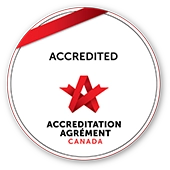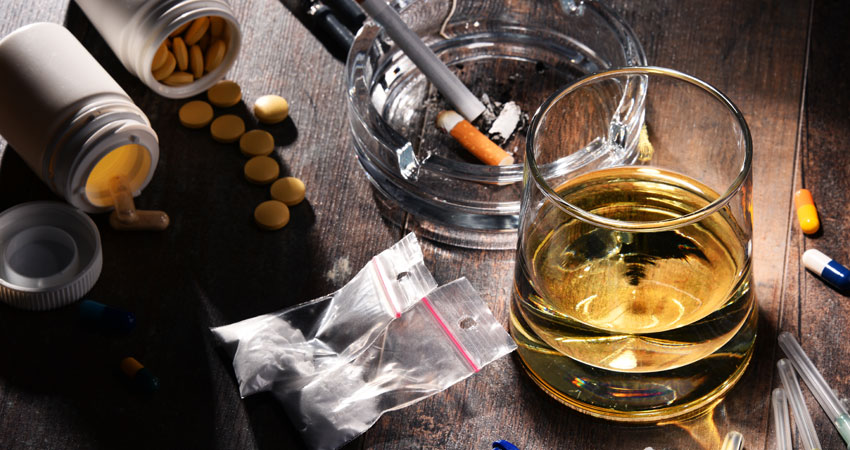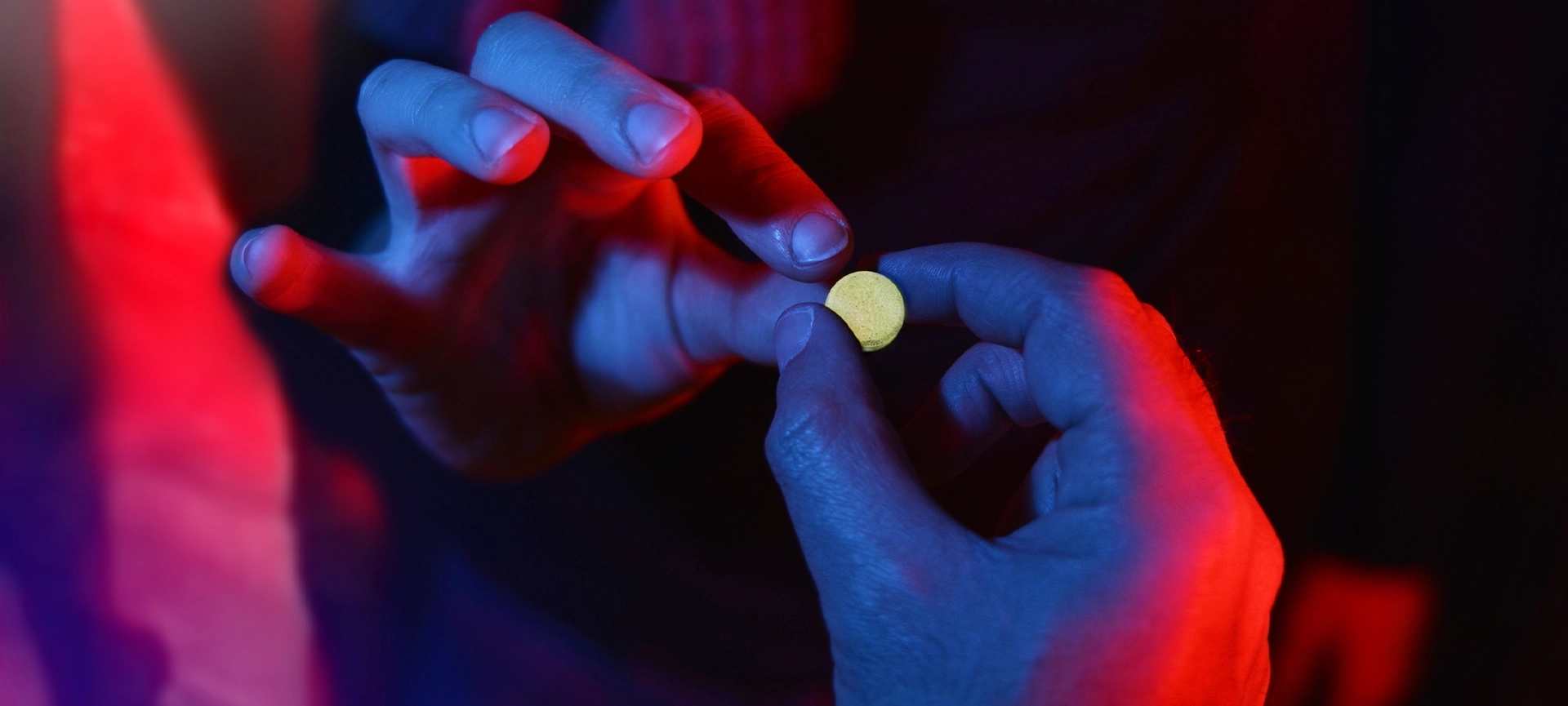Psychotherapy is just one of the many methods for treating various kinds of addictions. The type of treatment employed in a recovery program highly depends on the nature of the addiction and the specific needs of the recovering addict. This means that each individual is given a unique set of treatments to make sure that they are getting the best care so that they will be able to recover from their addiction successfully. In this article, we will look into Psychotherapy and how it is being used for treating addictions.
Before delving deeper into psychotherapy though, it is best to learn something about the nature of addiction. We will look into how addiction can change how the brain works, why people get into drug use in the first place, and the different ways in which addictions are treated. Hopefully, this article will be able to provide plenty of useful information regarding addiction and psychotherapy as a part of addiction treatment.
Related article: What is Addiction? Understanding Addiction
Understanding What an Addiction is
Addictions are a complex brain disease that takes control of the lives of people who have become addicted to substances or activities such as gambling. A seemingly bad habit becomes a full-blown addiction once the person develops a compulsive behaviour where he or she continues to do something even if there are already harmful and destructive consequences to such actions.
Individuals who are suffering from an addiction such as illicit drugs become very focused on one thing, and that is continually consuming their substance of choice so that they can get high. This is not just because they want to do it.
Even if they want to stop, they can’t because their bodies have become dependent on that substance. Without alcohol or drugs, they will experience severe withdrawal symptoms that are really difficult to deal with, even fatal. That’s why the process of detoxification is important and should be done in a controlled and supervised environment. This is to make sure that the recovering addict is monitored for any severe withdrawal symptoms and be treated accordingly.
Nevertheless, there are effective methods for treating addictions such as Psychotherapy. Anyone with addiction can definitely recover from it and rebuild their lives as well as the relationships that have been ruined by their drug, alcohol, or gambling problems. Addiction is not simple; the experience, effects, and treatments differ from one person to the next. It is vital that utmost understanding is extended to any person who is trying to recover from an addiction.
How Addictions Change the Brain
Individuals who suffer from addiction already have a distorted way of thinking. Their behaviour, as well as their body functions, have also changed because of their drug or alcohol use. The changes that happen in the wiring of the brain cause people to develop intense cravings for their substance of choice. That is why it becomes difficult to stop the habit of consuming them.
Studies on the brain show that there are changes in the parts of addicts’ brains that control behaviour, memory, learning, decision making, and judgment. Illicit drugs and alcohol cause changes in the way the brain functions that can be harmful to the individual who has an addiction.
The changes may be irreversible and may remain for the rest of the person’s life. The brain functions are affected once the substance is consumed. But the effects of the drugs or alcohol can last way after the intoxication, the high, and the intense pleasure has worn off. Eventually, addicts develop tolerance to their drug of choice. This means that they require higher amounts of the substance just so they can get the same intense pleasure as before. Overdose can happen and this may lead to serious consequences such as brain damage or death.
Why Do People Use Illegal Substances?
There are many different reasons why people get started on taking illicit drugs. Some would want to feel that high or extreme pleasure while others just want to have some relief from stress. There are also those who want to improve their performance in playing sports so they take performance-enhancing drugs. For most addicts, they start using illegal substances because of curiosity and at times, even peer pressure.
Individuals who have addictions are most often aware that there is a problem existing. However, they still cannot stop their drug use even if they wanted to. This is the nature of addiction; it takes control of the person that it ruins so many lives. It’s not just the addict’s life that is ruined but also the lives of their loved ones.
Categories of Addiction
Addictions can cause so many health problems for the addict. Apart from that are problems with school or work, as well as with relationships with friends and family. Drug misuse is the number one cause of illnesses that could be prevented and also premature death. That’s why it’s important to seek help as early as possible.
To better understand addiction, here are four categories of its symptoms:
- Impaired control – this is when a person has cravings or very strong urges to use his or her drug of choice. Even if they want to stop, they fail at attempting to control or cut down the use of the drug or alcohol.
- Social problems – drug or alcohol addiction can cause a person to fail in completing important tasks at home, at school, or at work. Even the activities that they once enjoyed are cut back or are given up because they prioritize their drug consumption.
- Risky use – this is when the drug is being used in risky situations. The addict continues to use the substance even if they are already experiencing bad consequences in their health, relationships, work, school, or finances.
- Drug effects – this symptom is when the person develops a tolerance for the drug which means that he or she needs a higher dose or bigger amount of the substance just so the same kind of high is achieved. Also, withdrawal symptoms can be experienced when drug use is stopped. Such symptoms vary for different substances.
A lot of individuals have both addictions as well as a mental health condition. The mental disorder may have been present before the addiction developed. It is also possible that the addiction triggered the mental disorder or have made it worse. In any case, both the addiction and the mental health condition should be addressed during treatment.
Ways on How Addiction is Treated
There are many treatments that can effectively address the problems of addiction. But first, an important step to be taken is recognizing that there is a problem present. The individual’s recovery process may be hindered if he or she is in denial of having an addiction problem. If they also do not fully understand their addiction and the problems that it has caused, then recovery will be a more difficult process. Usually, an intervention of the addict’s loved ones can prompt treatment.
A medical profession can start an assessment of the individual’s symptoms so as to check if there is indeed an addiction. Sometimes, it may seem like drug addiction is already so severe that no form of treatment can help the person. But one thing you should know about addiction is that it can be treated. There are many effective ways to do so.
Since addiction can affect so many areas in the life of a person, there are also multiple kinds of treatment needed. For many recovering addicts, it is essential to have a combination of therapies and medications. This has been proven to be an effective method for treating addictions.
Such treatment methods can address the recovering addict’s situation as well as any co-occurring problems; be it social, psychiatric, or medical. Addressing all these will lead to a recovery that will be sustainable and hopefully, with little to no relapse episodes.
Medications are an important component of drug addiction treatment. Prescription meds can be used in controlling the cravings for illicit substances as well as relieve the recovering addict of the withdrawal symptoms that he or she may be experiencing.
As for therapy like Psychotherapy, it can greatly help individuals with addiction problems in understanding their behaviour and their motivations. It can help them in working on their self-esteem and how they can cope better with the stressors of life. Mental health issues may also be treated using this method.
Some of the options for treatment include hospitalization, sober houses or therapeutic communities, and outpatient programs. It is best to talk to an addiction treatment expert to know which treatment program is best for the kind of addiction the person has and how severe it is.
How to Ensure Effective Treatment for Drug Addiction?
Drug addiction treatments are guided by principles that help healthcare professionals to make sure that the treatments being provided to individuals who want to recover from their addiction are effective. Here are the guiding principles of drug addiction treatments.
- Addictions are a complex brain disease that affects how the brain functions and how a person with addiction behaves. Nevertheless, this disease is treatable.
- There is no single kind of treatment that will work for all people with addiction problems.
- Treatments for addictions have to be available for those who want to address their addiction.
- For a treatment to be effective, it has to attend to the numerous needs of a person and not only the drug addiction.
- It is important for the recovering addict to remain in treatment for a sufficient amount of time for the treatment to be effective.
- Counselling, be it individual or group, as well as other kinds of behavioural therapies, are essential in treating drug addiction because it addresses the problem while helping the recovering addicts to develop new habits and behaviours to combat their addiction.
- Medications are vital in treating drug addiction but it is more effective when it is used alongside behavioural therapies and counselling.
- The treatment of the individual ought to be continually assessed as well as modified whenever necessary to make sure that the changing needs are met.
- For most cases of addiction, mental health conditions are also present.
- Medically assisted detox is just the first step in the process of drug addiction treatment. By itself, it is not enough to ensure the long-term success of recovery. Other kinds of treatments should follow immediately after detox.
- Treatment for drug addiction does not necessarily have to be voluntary to make sure that it is effective.
- The treatment programs for addiction should also check the individuals for any infectious diseases such as tuberculosis, hepatitis B and C, and HIV/AIDS. Counselling should also be provided to aid recovering individuals to change the way they behave because it may place them at greater risk of being infected or spreading diseases.
Related article: Top Effective Drug Addiction Treatments You Need to Know
The Vital Role of Therapy in Addiction Treatment
Getting rid of the bad habit of using illicit drugs is a colossal achievement for someone who has an addiction. There’s so much to be proud of but there’s still a lot of hard work to be done ahead. Detox is the beginning of the challenging process of recovering from an addiction. But every step that will be taken along the way will be helpful in learning to manage the craving you may have for those drugs and also avoiding relapse.
The mainstay treatment for drug addiction for many recovering addicts is counselling. Some examples of counselling therapies are cognitive behavioural therapy and family counselling. This helps so much in the maintenance of the individual’s sobriety. Psychotherapy is also important in treating co-occurring mental health issues.
Why Psychotherapy is Important
Addiction to drugs is not simply being dependence on the substance. Once the detox is finished and the body is no longer looking for the drug, there’s still a huge risk of relapsing. This is because particular social and psychological factors are powerful triggers that can lead a person to go back to using drugs.
For example, if the individual does not know how to cope with stress in healthy ways, then that can make him or her turn to using drugs or drinking alcohol again. It could also be that visiting the usual places where they once did drugs can trigger the craving. And of course, friends who still use illicit substances can influence a person to go back to using them, convinced that it won’t hurt the entire recovery process. Surely, this is the wrong way of thinking.
All these examples can create really strong urges to keep on using drugs. There is no single method of addiction treatment that is better than the other. In the same way, no technique will work for everyone who has an addiction. Each recovering addict is a unique case where the treatment should be specific to his or her needs.
Individual or Group Therapy?
For treating drug addiction, any kind of counselling therapy is better than nothing. This much is true. However, many prefer group therapy as compared to individual therapy. This is because, in group therapy, participants are both supported and challenged by other recovering individuals who are going through similar ordeals.
There are 12-step programs such as Narcotics Anonymous that provide support and encouragement to people who are trying to kick their addiction. This is also a very useful part of the process of recovery. However, with the 12-step programs, remember that the sessions are not facilitated by a psychotherapist so it is not the same as that of group therapy.
With individual therapy, people who have co-occurring mental health disorders can benefit from the sessions. Those who have depression or bipolar disorder need treatment for the mental condition apart from the treatment they are getting from their addiction.
Outpatient or Residential Treatment?
With residential treatment for addiction, the residents are separated from the things and places that have led them to get into drug use. They will live in a unique facility for a certain period that may last for a number of weeks to a few months. While living there, new skills and habits will be learned so that once they finish the program, they have a higher chance of staying sober.
This approach is effective for short term goals. However, studies on it are still ongoing if it can help individuals with addiction problems to stay away from old habits longer as compared to outpatient treatment programs.
With outpatient treatment programs for addiction, the sessions may be attended by recovering individuals. It will only be for a few hours a day. Participants continue to live in their house or in their family’s home while they are recovering.
There have been studies that show that relapse is highly likely if people with addiction problems go from a residential treatment facility, which is controlled and supervised, to their homes, where it is much easier to go back to using drugs.
Related article: Outpatient Addiction Treatment
Another consideration for residential addiction treatment is that it can be pricey as compared to outpatient programs. People who are planning to enroll in residential programs should be ready to spend on it in case their insurance won’t cover the expense.
Cognitive Behavioural Therapy
CBT is a kind of therapy that can teach people to recognize their thoughts, moods, as well as the situations that can trigger the cravings for drugs. The therapist in a CBT session teaches and guides the individual on how these triggers may be avoided. Recovering addicts will also learn about replacing their negative feelings and thoughts with ones that are good and healthy so that they will remain sober.
The skills that can be learned during sessions in cognitive behavioural therapy can be used for a long time throughout the recovery process and even after that. It is a powerful and effective treatment method. However, not all mental health professionals are experts or trained with the techniques of cognitive behavioural therapy.
Therapy for Family and Couples
Addiction to illicit substances does not only affect the life of the addict. The lives of his or her loved ones are affected as well. For the addiction treatment to be successful, the relationships with friends and family have to be strong. There are different counselling methods that can include the individual’s partner and also concerned family members and trusted friends.
Therapy for the family and couples can greatly help the person to recover from his or her addiction. Recovering addicts are more likely to finish their treatment program and attend therapy sessions when loved ones are included. The sessions also help in healing the damaged relationships caused by the addiction.
Studies have shown that therapy for family and couples can lower the chances of relapse, help in increasing the happiness of the family, and also helps the children of parents with addiction problems to manage the situation that they are in.
Related article: Family Counselling
Supportive Psychotherapy
This type of therapy aims to provide individuals with a safe space where they will be given the chance to discuss any area of their life that may be problematic. The therapist’s role is to be a good listener and encourage the participants to share how they feel.
Whenever it is necessary, the therapist can also act as a reliable authority figure or guide. He or she can outline things to the participants on what should or should not be done. Supportive Psychotherapy is not the same as exploratory therapy because it doesn’t try to uncover the individual’s past.
Supportive Psychotherapy is best for recovering addicts who are emotionally and interpersonally fragile. It is also beneficial for people who tend to become disorganized whenever they are confronted with memories or situations that are stressful.
Related article: What is Group Therapy for Drug Addiction Treatment?
Coping-focused Psychotherapy
This kind of psychotherapy’s goal is to teach participants the practical and specific way in which they can cope with their problems. These may be an addiction, relapse prevention, panic, anxiety, and depression.
The most effective type of coping-focused psychotherapy are the ones that base their methods on scientific research. The most recommended one is cognitive behavioural therapy. People with addiction problems should also check out programs for relapse prevention.
Interpersonal Psychotherapy
The aim of this type of psychotherapy is to teach individuals to become more socially and emotionally equipped and mature when it comes to dealing with other people. For many different reasons, a lot of individuals with addiction actually have poor interpersonal abilities. They also tend to deal with emotions in ways that are self-destructive.
Interpersonal Psychotherapy is usually done in the context of group therapy. This helps the participants to learn from each other healthier ways of expressing themselves and communicating with other people.
Exploratory Psychotherapy
The goal of exploratory psychotherapy is to help people in uncovering the connections between the experiences they have had in the past to the behaviours they have at present. And since this type of psychotherapy requires the participant to recall painful events in the past, the therapy itself may be traumatic to individuals who are fragile or have psychotic symptoms.
Studies have shown that recovering from a particular mental illness may proceed successfully without the need to discuss or bring up the past traumas. But with exploratory psychotherapy and exposure therapy, these can be useful treatments for trauma and anxiety-based disorders. It should not be dismissed as a treatment option for recovering addicts.
How is Psychotherapy Used for Addiction Treatment?
When a person is dealing with an addiction, it can take control of his or her life. Having an addiction is a complex situation that is deeply rooted in an individual’s past and is perpetuated even more by the present maladaptive mindsets and behaviours. Psychotherapy can provide a recovering addict with a way to take back control over their life and overcome the addiction.
The purpose of psychotherapy in addiction treatment is to be able to attain or maintain sobriety as well as prevent relapse from happening. This is done while providing support in the recovering addict’s life as he or she contends with the different situations that come up while pursuing the goals of recovery from addiction.
The cause of addiction comes from many different situations, emotions, social interactions, thoughts, behaviours, and triggers. With therapy, there is a chance to understand what the role of these factors is with the addiction and how it continues to encourage the use of illicit substances. The therapy sessions will be able to provide the person with how these things may be avoided and how to better cope with them whenever they will arise.
Recovering addicts should learn how to deal with triggers. Triggers are the cue that one experiences and that elicits a reaction to seek his or her substance of choice. This may include an event, a person, a place, memory, auditory, visual and other sensory cues. Of course, there are times that it’s not possible to completely avoid or remove all of those triggers.
But in psychotherapy sessions, the therapist will be working with the individual so that he or she will be able to manage the cravings as well as the thought processes that will emerge whenever the triggers are encountered.
What Psychotherapy for Addiction Treatment can Address
Psychotherapy can address a wide array of needs in a person’s life. In this section, we will look into the things that psychotherapy for addiction treatment can address. Remember that this is not only applicable to addiction treatment but also for anyone who is experiencing some challenging times in their lives.
Dealing with Major Events in Life
There are times when certain events like an illness, a loved one’s death, a divorce or breakup, or losing a job can lead a person to succumb to substance abuse which leads to addiction. With psychotherapy, individuals who have gone through or are going through a major life event can be assisted. They can learn how to cope with such situations and better deal with the implications of those events.
Facing Past Trauma
There are people who have experienced sexual or physical violence in the past. It may also be that they were able to witness or were involved in causing such trauma. Psychotherapy can help individuals to face past trauma and the effects of those events in their current life. Facing past trauma is a delicate process and should be handled by a trained mental health professional.
Learning to Take Care of the Self
Sometimes, people may not be able to take care of themselves well. This may be before the start of addiction and during it. Psychotherapy will be able to help such people realize that they have been neglecting themselves and learn how to better practice self-care. An example here is poor habits when it comes to sleeping. Psychotherapy can greatly help in resolving this problem so that recovering addicts can be better prepared in handling the demands of the recovery process.
There are some circumstances in the process of the addiction treatment where the individual will be able to get the best results when a combination of medication and psychotherapy is employed. Treatment for addiction that uses meds is called MAT or medication-assisted treatment.
MAT is an approach that supports the individual in areas of his or her life that have been affected by the addiction. It treats not just the emotional and mental needs but the physical needs as well. Recovering addicts can benefit a lot from medication-assisted treatments.
Related article: Post-Traumatic Stress Disorder
How to Harness Beliefs, Emotions, and Thoughts
An addiction can affect all aspects of a person’s life. This includes his or her emotional, mental, and physical states. With psychotherapy, recovering addicts can be taught how to better protect themselves and strengthen these areas in their life. This is done by helping them to understand and control their behaviours and thoughts.
The negative reactions to certain situations, behaviours, and thoughts can shake the foundation of a person and addiction can seep through the cracks. Psychotherapy can help people with addiction problems to learn how they can control their negative reactions and thoughts before those are transformed into negative actions that can lead them to go back to drug use.
Oftentimes, a person suffering from an addiction is also dealing with underlying mental health issues such as depression and anxiety. These conditions may have been there since birth or may have been aggravated because of their substance addiction. Employing psychotherapy for both the addiction and mental health disorders is a vital part of combating the two.
The mental issue and addiction have to be treated simultaneously. Otherwise, the treatment would be counterproductive and ineffective. This can greatly slow down or hinder the addiction recovery process of the person who wants to break free from his or her addiction problems.
Before an addiction develops and also during it, an individual is usually dealing with so many negative emotions. This includes loneliness, sadness, anger, blame, self-loathing, fear, and shame. These are emotions that can drain a person and leaves them with so little energy to muster mindfulness and positive emotions.
Psychotherapy can illustrate to these people the many destructive qualities that such negative emotions have as well as where they are rooted. Oftentimes, the individual creates situations in their mind that are unrealistic. This allows the negative emotions to take over and push them deeper into their pit of self-loathing.
Among the most common causes of drug use and addiction is stress. There are many times in a person’s life that he or she feels that they are just unable to handle the stress of everyday life. That is why they turn to self-medicating and use substances that help them to feel numb if not better.
With psychotherapy, individuals with this problem will be directed towards much healthier ways where they can better take control and deal with the stress. This is important because knowing how to cope with stress means there are lesser chances for bad habits to re-emerge and find their way back into the person’s life.
What Sessions in Psychotherapy are Like
The first session in psychotherapy will be the foundation of the following sessions after that. This is a chance for the therapist to be able to get to know the individual and understand his or her addiction and situation. This is a way to determine what will be the best way to treat the addiction and the other mental conditions present.
What is important in this first psychotherapy session is that the individual has to be as open and honest as possible about his or her addiction, life, and other information that is relevant to the case such as details on his or her influences for using alcohol or drugs.
The more information that the therapist and client can work with, then the better it is for the treatment of the individual because he or she will be given the most appropriate kind of care and support as he or she goes through the addiction recovery process.
Before or during the primary sessions in psychotherapy, the individual will be asked to go through an alcohol or drug screening. It is simply a questionnaire where the client will have to answer about his or her drug or alcohol addiction. Other questions may include those regarding reactions, circumstances, thoughts, and behaviours revolving the addiction.
The therapist will be reviewing the information provided by the client so that it will be assessed and evaluated. This will provide the therapist with the opportunity to gather important details from the initial input. Combined with the kind of drug and the intensity of the drug use, the therapist will be able to identify what is the best direction for the psychotherapy sessions and the addiction treatment.
Because of the intimate nature of psychotherapy sessions, the client may find that the conversations are straightforward and intimidating. For some, they would want to walk away from this kind of uncomfortable situation. However, what people in recovery from addiction should remember is that it is natural to feel embarrassed, intimidated, or ashamed.
What is important is that they should continue to move forward and keep the dialogue open. Keep in mind that the change and the improvement being hoped for in the addiction recovery will take time. Both the client and the therapist has to put in the work so that the treatment will be effective and the recovering individual will be able to gain back control over his or her life.
Another important thing to remember in psychotherapy sessions is that one should not be afraid to ask questions. Questions are very much welcomed; encouraged even. It’s not only the therapist who can ask the client. The recovering individual is also given the opportunity to raise any issues that he or she may have. Psychotherapy is a two-way street. The therapist will be able to help the client better if the person can also do his or her best to contribute to the sessions.
Takeaway
These are the ways on how psychotherapy is used for treating drug addiction. It may seem intimidating to open up to a therapist, who is at first a stranger, to talk about one’s substance use, feelings, past, and other experiences. But this is an important process in drug addiction treatment.
While many people have tried self-medicating to cope with their problems, leading them to drug use and addiction, it’s time to acknowledge that there are also plenty of healthcare professionals and addiction treatment experts who are ready to help so that the recovery process may begin.
The first important step is recognizing that one needs help to combat the addiction and the problems that it has caused. The second step is reaching out and voicing out that you need that kind of help. That is the only way that the treatment process can start and addiction may be controlled and defeated.
If you’re thinking of getting help for yourself or a loved one who is dealing with addiction, don’t hesitate to contact Addiction Rehab Toronto. We will be happy to discuss with you the different treatment methods available and how this can help you or your loved one conquer addiction.
Related article: How to Tell if Your Loved One has a Drug Addiction










